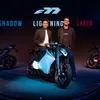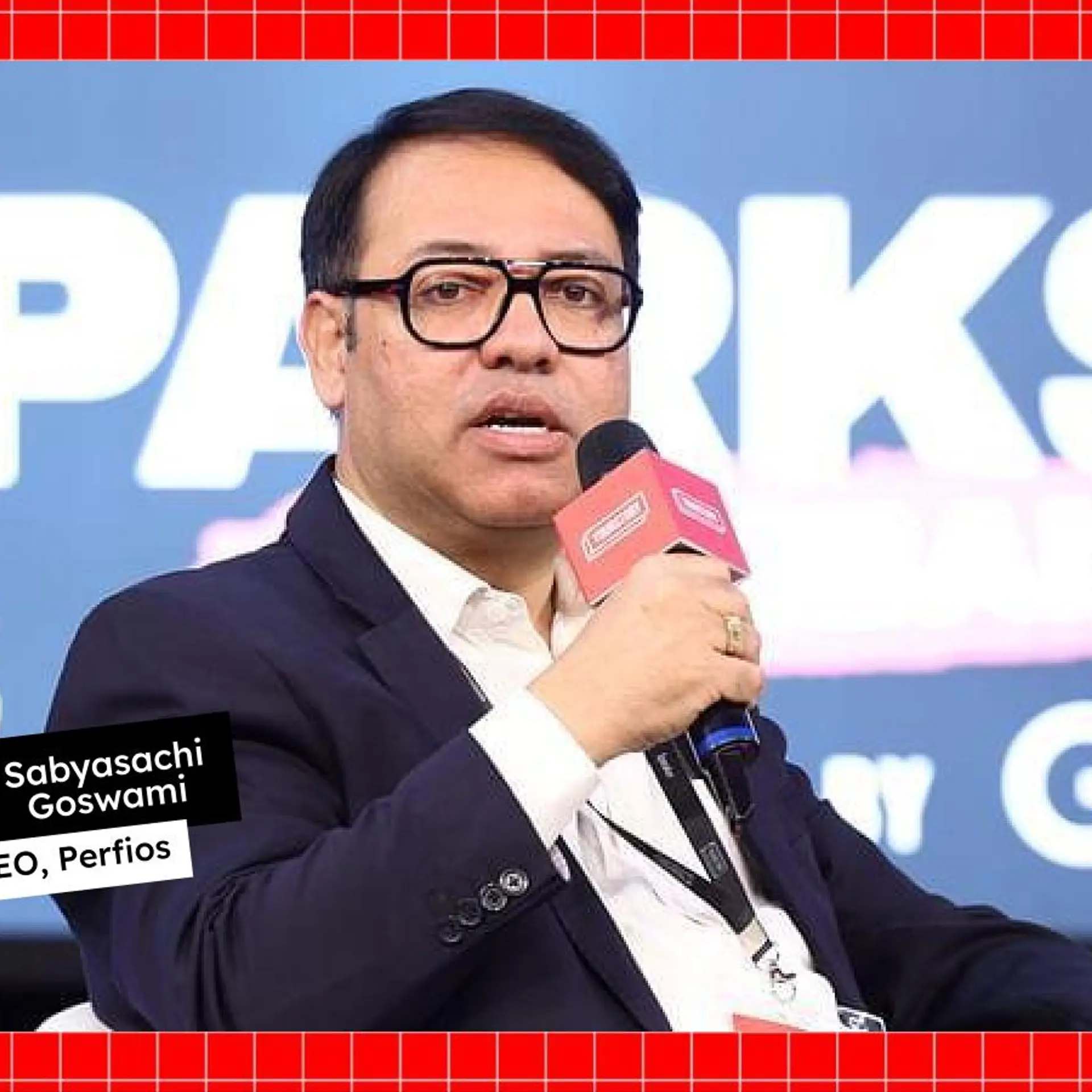Inspired by Elon Musk’s Tesla, this EV startup is building superbikes for India
Founded in 2015, Ultraviolette is a Bengaluru-based electric vehicle company, which is building an ‘aspirational’ superbike for the Indian market.
Around 2015-16, prices for lithium batteries started dropping. By then, in the US and Europe, Elon Musk’s Tesla was already making waves. The company changed the perception around electric cars, making them ‘cool’, high-end luxury products — aspirational not just functional and eco-friendly.
In India, entrepreneurs Narayan Subramaniam and Niraj Rajamohan realised that the next decade would see a rising need for electric vehicles.
However, they wanted to find a niche in this sector, and make a considerable impact. To this end, the duo decided to build electric superbikes in India for the Indian market. Thus, in 2015, they founded
According to Niraj, people in India often have an emotional attachment to their bikes. Many youngsters associate their first hike or passing an exam with getting a new bike.
The duo felt there was an opportunity to build an aspirational value for bikes in India. Most millennials were already aspiring for a Tesla-like product, and are aware of its value. This is the coolness factor Ultraviolette wants to bring to bikes.
Simply put, Ultraviolette bikes will work like IoT devices. The body of the vehicle has a lot of technology in terms of batteries and sensor absorption while the consumer will also have an app that gives them the ride data.
“There are three parts where tech is integral — battery, the body, and the app. Each one brings in different aspects of technology that changes the ride experience for the user,” says Niraj.

Ultraviolette Team
Why superbikes
Narayan explains while looking at the EV space and its different aspects — last-mile mobility, connectivity — they wanted to build a long-lasting niche product for India.
Aware that the final product would take three to four years, Narayan says, they didn’t want to look at a segment that was already crowded or focus on technology that wouldn’t scale, to begin with.
He says that there already exists a segment for scooters, 100 cc equivalent bikes, 200 to 300 cc bikes, and of course, the super-premium segment, which is niche.
The idea was to build tech that can, in future, take Ultraviolette into different segments. Hence, an automotive tech company.
“We realised that OEMs would also start working on building EVs but they would take longer, and that is where we had an advantage,” explains Niraj.
The team started in 2016 by building prototypes. At the time, it had a team of eight members. Today, the startup employs over 80 people.
“We had raised an initial round of funding by Speciale Invest. The supply chain was established in India with big companies like Bajaj, TVS, Royal Enfield. It was only the electronics and batteries that needed to be figured out. If you look at the two-wheeler market, every part of the vehicle comes from India,” adds Narayan.
Talking about their investment in Ultraviolette, Vishesh Rajaram, Managing Partner, Speciale Invest, says the fund invests in industrial hardware startups.
He explains, "When I first meant Narayan and Niraj, they were in the ideation stages and in the first-mile and last-mile connectivity. What was clear was the team’s ability to envision the product, prototype it, and deliver a high-quality product, backed by engineering and talent.”
In September, Ultraviolette also raised Rs 30 crore by leading two-wheeler and three-wheeler manufacturer TVS Motor Company, as a part of its ongoing Series B funding.

The Ultraviolette F77
A Made in India approach
Many companies take the shortcut, using available kits from Southeast Asia and China and assembling it in India. In Ultraviolette, except for the battery cells, every other aspect of the motorcycles is made in India.
“We saw a clear gap in the market and decided to focus on the core tech aspects like the batteries and the power train. We decided to build a strong team on the battery and power train of building the bikes,” says Narayan.
For this, the startup brought in people who have collective experiences from different industries across, automotive, aerospace, and consumer electronics.
The team had to focus heavily on simulations to ensure that the vehicle could withstand all of Indian conditions both from a mechanical and electronics perspective. And this simulation happens only in the aerospace industry. Narayan says the idea was to build a high-end gadget on wheels than just a simple motorcycle.
“What also helps is the founders’ complementary skill sets. Niraj has a deep understanding of electronics and battery designs and science; Narayan is strong on design and mechanical engineering. It is an interesting combination. We thus invested in the founders,” says Vishesh.
He adds that the founders displayed skills of moving from being raw founders to operational founders in the company.
“They have displayed the ability to let go and get in the right teams to build the right technology. They also have the vision and passion to find the right people,” adds Vishesh.

The F77
Rigorous testing — the only way to success
The design and engineering teams worked together to build the vehicle. The process started with designs and sketches to building 3D models, and finally, the actual bike.
The team then conducts thermal aerodynamic structural analysis, where different simulation tests take place.
“We have like various systems within that from the battery management system into the motors with electronics to like safety systems and safety strategies. Sometimes, there are manufacturing defects that come from the suppliers itself,” says Niraj.
Ultraviolette also needed to ensure that the batteries are functional in a tropical climate. It also had to ensure that the batteries wouldn’t degrade faster in the climatic conditions.
The team has had work on managing the heat and quick cooling of cells without using space-grade materials. It had to be materials that are available in India that can be sourced at volume.
“It's about material science; it's about structural engineering thermal engineering, safety, engineering, and then, electrical all coming together,” says Narayan.
The batteries are lithium-ion cells. Once the battery is solved, the next step is delivering the energy of the battery into the motor. It's quite complex in that you have to be able to match torque requirements, with the throttle to what an individual expects out of their vehicle. Throttle control has to have a smooth transition.

The app
The app and consumer experience
While the Ultraviolette app does have a locking and unlocking mechanism, the founders believe that people like physical keys.
“People want to show off,” says Niraj.
On the apps, users can build their profiles, filter functionalities, and more. It can be used to determine whether the bike is charging or not, its performance tuning, and more.
“You can set the bike according to different modes — race track, city or out of station. There are different regenerative brakes. For example, do you want the bike to slow down the minute you release the throttle or when you apply the brakes; it depends on your riding style and how much energy you want to conserve,” says Narayan.
The vehicle also captures data on the laps, leans, the usage patterns, and power you have consumed, helping you analyse the riding style.
“There also is internal diagnostics on the app that gives a view of the systems that are function, what needs replacement, and what can be done better,” says Narayan.
All vehicle and ride data is captured, analysed, and displayed to the consumer. For example, when you connect your bike to the wall charger in your house, the system is able to track how many units of power is used.
“The app also gives the battery status. We are also providing the functionality of setting your charging limits,” adds Niraj.
Both the bike and the app have navigation systems and the team is working to add more technology, including CCS charging standards, which is a combined charging standard for multiple brands.
“The standardisation has started in India as well, making it easy for several EV startups,” says Niraj.

Behind the making of Ultraviolette
The market and future
The market for EVs in India is fast growing. Established players and startups alike are looking closely at the space. TVS Motor Company Ltd acquired shared mobility startup Intellicar Telematics Pvt Ltd earlier this month.
Ola recently announced that it will be launching electric two-wheeler range in New Zealand. Meanwhile, Ola Electric stated that it is setting up the world's largest scooter factory in India, which will have the capacity to manufacture over two million scooters a year. There also is Ather Energy in the two-wheeler segment.
However, the co-founders of Ultraviolette are clear — the startup is in the motorbike and high-end bike segment.
“The more players, the better it is for the overall mobility segment. Currently, we are looking at testing and launching our vehicles soon,” says Niraj.
At present, the Ultraviolette superbikes are being manufactured in Bengaluru. The team plans to open up for test rides in January 2021.
The vehicles will be available in the market in mid-2021, priced between Rs 3 lakh and Rs 3.5 lakh.
Edited by Saheli Sen Gupta




![[Funding Alert] Ultraviolette Automotive raises Rs 30 Cr Series B investment led by TVS Motor Company](https://images.yourstory.com/cs/2/a9efa9c02dd911e9adc52d913c55075e/Imagernoc-1599117610883.jpg?fm=png&auto=format&h=100&w=100&crop=entropy&fit=crop)







